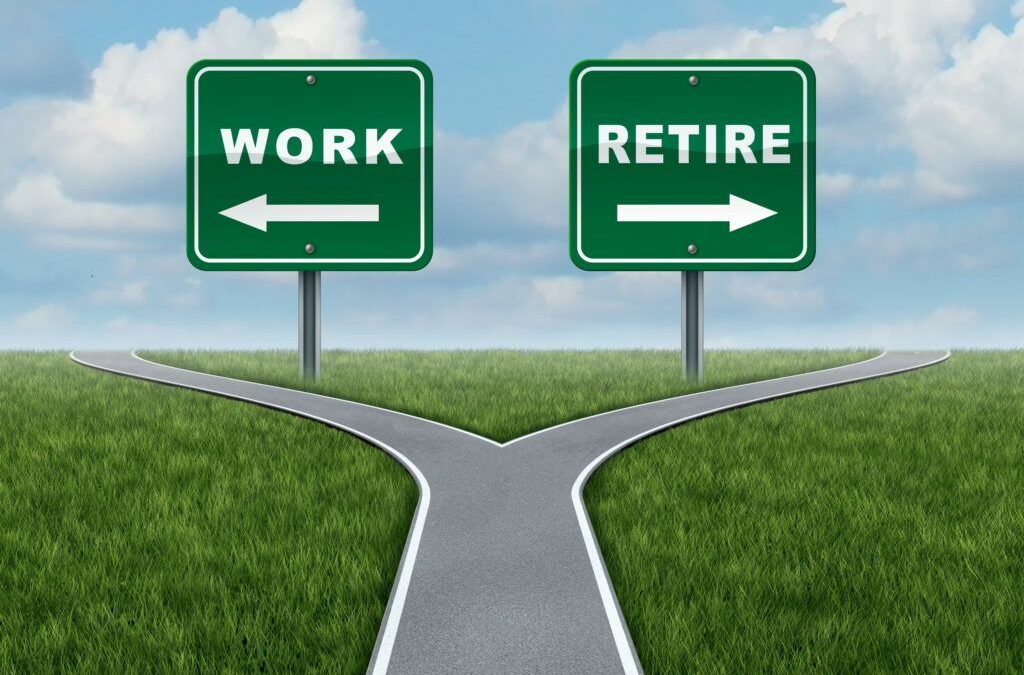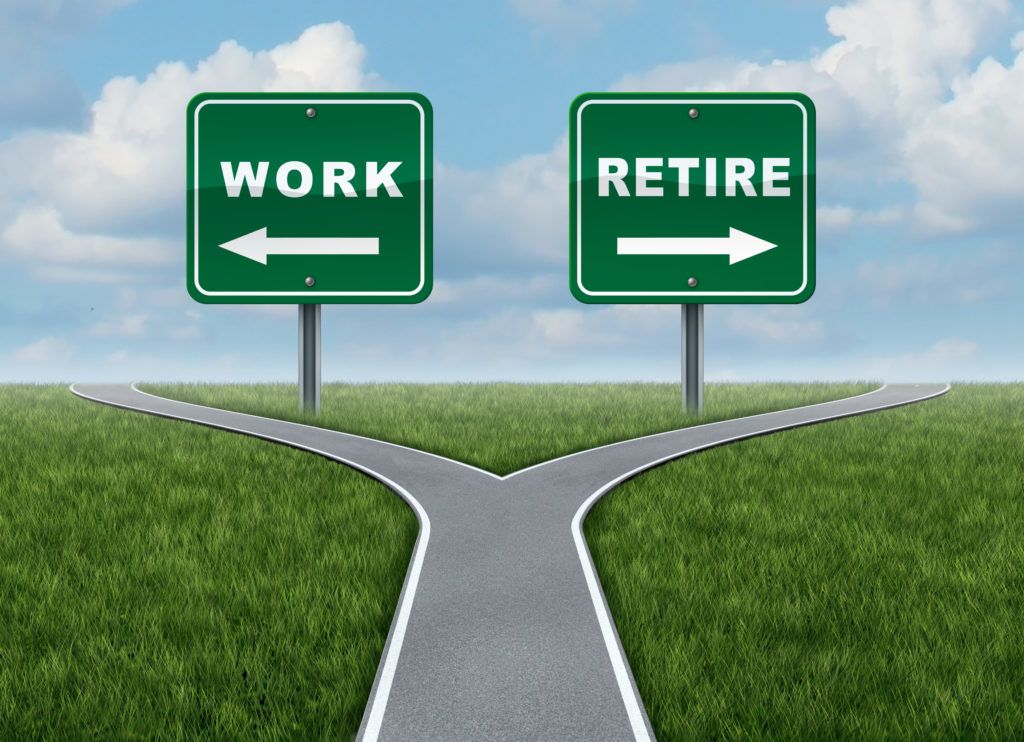
When you think of a dream job, you might envision a venture that individuals pursue when they are younger. For example, many college students are asked about their dream job. However, as an older adult, you have the opportunity to pursue your dream job at this time. Before you balk at the idea, consider the reasons why now is the perfect time.
Stable Income
If you take a look at the median amount of savings people have by retirement, you’ll realize that you may have the extra income to leap into a new profession. In other words, you may have enough money saved to quit the part-time job you’ve been working or to take the necessary classes to get your dream job. Financial instability is often a factor that keeps people from achieving their dreams, so when you do reach that point of stability, going for your goals is a smart move.
Ability to Return to School
At many points in life, returning to college or attending a university for the first time simply isn’t feasible. When you’re younger, you likely have many other bills to pay, such as child care expenses and a mortgage. With the average cost of college, enrolling in a program is simply over budget for many people. At an older age, however, these bills can start to decline, and you may have the ability to afford to get the degree necessary to pursue your dream job. Do look into the degree requirements for the job. You may not need a degree from a four-year university. Also, keep in mind that the cost of state schools is typically lower than the price of private institutions.
Sense of Self
Trying to figure out what you want to do for the rest of your life as a teenager is extremely difficult for a variety of reasons. One of the reasons is that you really do not fully know yourself yet. For example, several teenagers question their faith and give up religion entirely for at least a brief period. On the contrary, becoming a clergy member is a popular job for older Americans. This sense of self does not have to be religious. By the time you are older, you likely know more about your beliefs overall, your interests and your passions.
Confidence
Going for your dream job takes a significant amount of confidence. Sometimes, young people have not yet built up the necessary confidence in their communication skills or simply in the ability of the job to pursue their dreams. Of course, overconfidence can lead to problems, but having enough confidence to pursue your dreams is crucial. By this time in your life, you have likely recognized what your strengths are. You know that you have the skills necessary to pursue the position. This boost of confidence can help you to get in the door for your dream job.
Time and Location
You might also have avoided pursuing your dream job because of time. For example, if you had to work a full-time job to support your family or if you were focused on bringing the kids to their activities and school events, you did not necessarily have the time to chase after your dreams. Now that the kids are grown up and now that you have retired, you have some extra time on your hands to put toward focusing on yourself. Further, these commitments when you were younger might have kept you tied to a specific geographic location. With this extra freedom in terms of time, you may also now have the ability to relocate to an area that will better allow you to get your dream job.
Being older doesn’t mean that you need to give up on having new dreams. In fact, now could very well be the best time in your life to go after these pursuits and passions.
Does your plan meet all your retirement needs? Schedule an appointment now with one of our advisors for a complimentary review of your retirement plan.

Retirement is something most people look forward to in the United States. This is because it offers them the opportunity to travel, spend time with their families and essentially relax. All that is possible because most people are going to qualify for Social Security benefits. However, some individuals, especially those who used to run their own business, may find retirement to be a little too dull for their liking. As a result, many will often go looking for part-time work to either have something to do or supplement their monthly income. But how much does this affect your Social Security benefits? Read on to learn about this very important topic.
How Your Social Security May Change
As stated above, beginning to work full or even part-time can drastically affect your Social Security benefits. Although there are various factors that the government will take into consideration before making any changes, it is still good to know the potential changes that may benefit you. Below are a few of those potential changes:
- Your benefits will vary depending on your age
- Your Social Security benefits may be reduced depending on your new income.
- The types of benefits may be eliminated or altered to account for your new income.
Understanding Full Retirement Age
One of the most common terms you will hear when considering opting in for Social Security is “Full Retirement Age.” This is because although you can certainly accept Social Security at 62, your benefits may be reduced depending on your birth year. What this means is that depending on the year you were born and the laws during that time, your “full retirement age” will matter greatly in terms of how much you get. For example, someone born in 1937 or earlier will reach full retirement age of 65 rather than today’s 62. Why does this matter so much? It matters because if you are legally at full retirement age, you can work and earn as much as you want without being penalized by the government.
Working Before Full Retirement Age
If, unfortunately, your birth year law states that you are not considered to be at “full retirement age” just yet, you will have to be careful about how much you earn each month. According to the Social Security department, individuals who are not at full retirement age and are currently working full or part-time can only make $1,580 per month or $18,960 per year. If you go beyond that limit, your benefits will decrease by one dollar for every two dollars earned over the limit. That is why it is highly recommended to keep a detailed record of how much you are earning through regular wages and yearly bonuses, as they will also be considered part of your income.
Social Security Earnings Limit for 2021
Earlier, we spoke about the fact that those who are at full retirement age can earn as much as they want without fearing a reduction in their benefits. However, things are going to be very different if you are reaching full retirement age within the year 2021. This is because now there will be an earnings limit imposed amongst many other changes. The new earnings limit for individuals who will be reaching full retirement age and receiving Social Security will be $4,210 per month or $50,520 a year. After every one dollar that is earned, three dollars will be reduced from your monthly Social Security check.
As you can see from the information above, several factors must be taken into consideration when deciding to return to the workforce. Although each person’s circumstance & experience will dictate how much or how little of their benefits are changed, much of the rules imposed by the Social Security department are universal.
Does your plan meet all your retirement needs? Schedule an appointment now with one of our advisors for a complimentary review of your retirement plan.

Retiring is the goal of every worker who dreams of leisurely breakfasts and time in the garden. However, getting to retirement takes some financial effort and strategic planning. The reality of having no job means that you’re on your own when it comes to every facet of your financial life. Before you send in that letter of resignation, get familiar with the top questions that you need to ask yourself before retiring. You’ll have less stress as a result of these well-answered questions.
What’s Your Plan For Healthcare?
When you’re working, your employer’s coverage keeps you healthy with reasonably affordable policies. All of that changes when you retire, however. Ask yourself if you have a plan for healthcare coverage. Ironically, the time of your life when you really need healthcare coincides with the lack of an employer’s policy.
Luckily, the federal government offers Medicare. From the moment that you turn 65 years of age, you can take advantage of this program. It covers the bulk of your medical needs, and there are supplemental programs for options that you care to invest in.
COBRA insurance coverage is possible between your employment period and signing up for Medicare, but it only lasts for up to 18 months. It can also be very expensive because the employer isn’t paying for part of the cost. Ideally, you’ll want to rely solely on Medicare while looking for supplemental programs to cover speciality items, such as vision.
What Will Your Income Include?
On average, Social Security will cover about 40 percent of your income in the golden years. You can start payouts as early as age 67, but many retirees choose age 70 because there’s a higher monthly payout as a result of waiting. Your retirement savings must cover the bulk of the remaining shortage.
Many financial experts teach the concept of the 4- percent rule. In essence, you can take 4 percent of your funds from a retiring account each year, and you should still have enough money to cover your remaining years. There are other calculations to consider, such as understanding how much money you’ll need each month in these relaxing years. Although some experts believe that you can live off of 70 or 80 percent of your previous earnings, it’s ideal to shoot for a comparable income as earned during your working days. With this tabulation, you have extra funds for hobbies and traveling.
Do You Have Plans For Your Time Off?
Planning for your golden years also means that you need to fill the time that is now open to you. Isolating yourself from your social network at work can be detrimental to your health. Make rough plans for your golden years because filling the time can be a rewarding prospect. Volunteer with charities, help out the family or get a part-time job. Working as a consultant with your previous employer might be an option that keeps you connected while still enjoying the spoils of retiring in your 60s.
It’s natural to try new things, but then you’re not too thrilled with them. Continue to explore as you grow older because you might find a hobby or talent that sparks creativity in your mind. Many retirees find themselves starting a business as they learn how to offer a product or service that counts in the neighborhood.
Stay updated with your retirement plan by logging into your funds regularly. By knowing how much you have and where it will be allocated gives you a clear view of your retirement pathway. Retire with confidence that your plans will stand the test of time as opportunities spread out ahead of you.
Does your plan meet all your retirement needs? Schedule an appointment now with one of our advisors for a complimentary review of your retirement plan.

Your 50th birthday is a big milestone in your life, and once you’re past it, you need to ramp up your retirement planning. Hopefully, you’ve been doing at least some saving and building up a nest egg, even if you haven’t quite been hitting your goals every year. But no matter what your financial situation is like, you can make sure you’re on the right track with a few simple planning tips to use throughout your 50s.
1. Figure out Your Goals
If you’ve been contributing as much as possible to both your 401(k) and your IRA every month, then you’re likely in good shape and should continue doing that. If you haven’t, that should be your minimum monthly savings goal. Considering the tax benefits of those plans, you’re practically giving away money if you don’t contribute the maximum.
For your account goal when you retire, a common number that financial professionals mention is 10 times the amount you make in your final full year of working. Of course, this will depend on your income, your lifestyle and the expenses you expect to have. It’s best to err on the side of caution, though, considering how most people underestimate the amount they’ll need when they retire.
2. Plan to Get Rid of Your Debt
Many people in their 50s are still paying off their mortgages, and you don’t need to be as aggressive about that since this type of loan tends to have a low-interest rate. You’ll likely get a better return on money that you invest than if you had used it to pay extra on your mortgage. Just make sure that your mortgage will be paid off by the time you retire. If not, you should start paying extra to pay it off more quickly.
3. Determine Your Appetite for Risk
With your retirement plan, you’ll be able to invest your money in stocks and bonds, with stocks earning a historical average of a little over 10 percent annually, compared to about 5 percent for bonds. This obviously doesn’t mean that you want to go with an all-stock portfolio, though. You also need to be prepared for a worst-case scenario where the stock market crashes. It’s important to have a diverse mix of stocks and bonds just in case.
You can set up your portfolio conservatively or with a higher risk and reward. If you’re a bit behind in your savings, you may want to start favoring stocks to hopefully earn a higher return and get back on track. If you have a solid nest egg already, you may be better off playing it safe.
As everybody learns and many learn too late, the earlier you start planning for when you retire the better. But there are still steps you can take in your 50s to make sure that you’re set when you do decide to retire. The three steps above will put you on the right track.
Does your plan meet all your retirement needs? Schedule an appointment now with one of our advisors for a complimentary review of your retirement plan.


This year has forced some to think about retiring early. When it comes to retiring early, some of the benefits are obvious! You get to live your life without the constraints of work, and you are able to pursue your own interests. But there are other good reasons for retiring early, and there are some reasons why retiring early is not the greatest idea.
Your Dedication is Gone
One of the good reasons to retire early is that you are simply not dedicated to working anymore. When you are no longer emotionally interested in working, your performance deteriorates and your company suffers.
Working Took its Toll
In some professions, such as construction and law enforcement, the physical and emotional demands of the job can become too much over time. After a few years in a high risk profession, your body and mind have simply had enough and it is time to go home and rest.
Your Finances Become More Flexible
Most people do not realize how expensive it is to work until they are no longer working. When you work any job, you incur expenses such as wear and tear on your car, transportation expenses such as gas or bus passes, work clothing costs, daycare and miscellaneous medical costs for work-related injuries. If you have planned your finances to allow yourself to retire early, then you will find that your money goes much further when you are not working.
Your Health Could Suffer
For some people, retiring early means abandoning the daily physical activity working required and giving up a big piece of their identity. Retiring early can cause physical and mental problems that could become very serious over time.
You Lose Your Social Circle
After years of working, you tend to take for granted the notion that you will see most of your friends at work five days out of the week. Even people who think that the people they work with are only acquaintances suddenly find that the loss of the social circle they developed at work is devastating.
You Didn’t Plan Well
When you retire before the age of 65, you run the risk of losing out on health insurance. Medicare automatically kicks in for every American when they turn 65, but what would you do until that age? Did you plan your retirement finances right, or will you run out of money? Many people forget to take inflation into account when they plan their retirement, and that makes retiring early financially dangerous.
There are two sides to every story, and that includes the story that goes with retiring early. The idea of walking away from work before the age of 65 can sound appealing, but there are plenty of variables to consider before you make that decision. If you do want to retire early, then talk about it with your family and ask your financial adviser if you have structured your savings properly to be able to live without a paycheck for the rest of your life.
Doug Ybema- Grand Rapids Office https://go.oncehub.com/DougYbema
Randy Knapp- Okemos Office https://go.oncehub.com/IntegrityFinancial
Sources:
http://money.usnews.com/money/blogs/on-retirement/2015/02/05/6-reasons-you-shouldnt-retire-early
http://www.bankrate.com/finance/retirement/signs-ready-to-retire-early-1.aspx

During his run for President, President Elect Joe Biden released a 110 page document to shade more light of his economic plan and the implications it has on retirement. So, what does the next 4 years look like for the impact it has on several factors such as the tax code, savings for retirement as well as social security.
TAX POLICY
Joe Biden’s tax policy plan with regards to retirement involves increment of taxes on the wealthy in a bid to raise revenue. These taxes could be raised from 37%-39.6%. Capital gainers especially those in the stock markets and real estate could also have their tax rates increased. Capital gainers that make about one million dollars in profit, could have their tax rates increased from the current 20 percent to about 39.6 percent which is almost double.
Doing this could help a lot with your retirement savings. This is so because withdrawals for IRA and 401(K) are not subjected to taxes for capital gains. Instead, they are only subjected to regular income taxations.
If you are making an income of a million dollars and have retirement investments that are non-qualified, then you may need to make changes.One way to achieve this is by delaying any withdrawals until when you stop working.
SOCIAL SECURITY
The American social security was in question during the campaign, with experts stating that it might not go beyond 2035. Because of this, President Elect Joe Biden’s policy has put in place measures that will at least work to ensure that it lasts longer and get back on track. Biden plans on doing this using the approaches discussed below:
Expansion of Social Security Benefits
• This plan involves new benefits which is minimum for people who have worked for 30 years. These will be subjected to a poverty level of about 125%.
• The second way the social security benefits will be expanded is using monthly increased benefits for some retirees.
• A 20% increment is also expected for widows and widowers.
• Older retirees are also set to benefit by receiving an increment to cover for their health costs and savings that have gotten depleted. This however applies only to retirees who have at least 20 years of receiving the benefits for social security.
Terminating any kind of social cuts
• The Biden plan will work on doing away with any cuts in social security. This includes cases where the retirement age was raised and only Americans of low income were getting benefits from the program.
• Biden also plans on making it unlawful to repay the loans for federal students using the income from social security.
iii) The “donut-hole” Approach
• Here, Biden plans on subjecting the highest earners to increased taxes.
• For now, only $137,700 of the annual earnings for employees are subjected to taxes for security payroll.
• In Biden’s new plan, earnings that will be exempt from taxes related to social security will be between $137,000 and $400,000. What this means therefore is that any earnings beyond $400,000 will be taxed.
RETIREMENT SAVINGS
Despite the fact that Biden has put every measure in place to ensure that the social security is expanded and more stable, his plan also reiterates on the importance of making savings either in the IRA OR 401(K).He plans to encourage savings through the following measures…
Creating incentives for Employees and their Employers
• About 40% of the US Economy is accounted for by businesses that are small. These businesses are often quite reluctant about giving their employees benefits for retirement, citing costs and other administrative issues.
• Through the SECURE Act plan therefore, the Biden plans on giving small businesses more tax breaks. This is in a bid to help them organize for a retirement plan for their employees so that they can invest more on their future.
• The Biden plan also called for automatic 401(K) to encourage making savings especially for the employees who are not attached to any sponsored employer plans.
Contributions of Caregivers
• Deferrals of up to a particular amount in one’s account for retirement are often allowed by the current law.
• For instance, the limit for contribution for 401 (K) for this year, 2020 is $19,500.
• Sometimes however, unavoidable circumstances may subject an individual to go for temporary leave.
• During that window period, they may thus be unable to make contributions to the required amounts.
• The Biden plan takes care of such individuals by offering them a chance to bridge the gap when they get back to the workforce. This is achieved by ensuring that their limits for annual contributions are raised, hence enabling them to catch-up comfortably.
401(K) Tax Benefit Equalization
• The Biden plan allows for anyone with deferrals for tax 401(K) to use contributions from pre-tax to rapidly grow their accounts. When it comes to such an individual’s time to retire, they shall use these taxes which will depend mostly on their annual earnings at the given time.
• Biden’s team also worked to ensure that the tax benefits for those with 401(K) accounts are equalized.
• The plan also proposes using a flat tax credit. This will be a major relief especially because the contributions for retirements are tax-deductible. When you file your returns therefore, they will not be considered as income that is taxable.
• The Biden plan will work to ensure that your taxable income is not inclusive of any other tax credits. What this means is that irrespective of the fact that your full salary will be taxed, your tax bill will be exclusively dependent on the contribution you have in your 401(K) account.
Does your plan meet all your retirement needs? Schedule an appointment now with one of our advisors for a complimentary review of your retirement plan.







